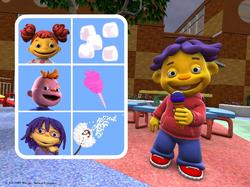There was a post on ProActiveDads.com today referencing an article about the Amish and Autism. The article claimed that the Amish don’t raise their children and also don’t have any instances of Autism. This, the article implied, was proof that vaccines caused (or at least were somehow linked to) autism. Something about their reasoning didn’t sound right to me, so I did some digging. It wasn’t hard. A simple Google search for "autism Amish" turned up another article. This article pointed out that many Amish do indeed vaccinate and that there are autistic Amish. Their rates may appear lower, but there’s a reason for that:
[Dr. Kevin Strauss, MD, a pediatrician at the CSC] says a child in the general population is more likely to have autism detected early and to receive a diagnosis than an Amish child. "Amish child may not be referred to an MD or psychologist because the child is managed in the community, where they have special teachers," he says. "We know autism when we see it, but we don’t go actively into the Amish community and screen for ASD."
So the Amish aren’t as likely to take their children to the doctors who would diagnose the child as autisic. Since the child wouldn’t be diagnosed, the autistic Amish child wouldn’t be listed in the statistics and the Amish would appear to have few, if any, cases of autism.
However, there’s a deeper flaw in the original Amish-Autism article that goes beyond lack of facts. Even if the Amish didn’t vaccinate and even if the Amish had a lower, or even zero, rate of autism, that wouldn’t mean that vaccinations cause autism. Correlation does not imply causation. There are a lot of other factors that could lower the Amish rate of autism (assuming still that it was indeed lowered and not a statistical fluke caused by low reporting numbers). Perhaps all the fresh air helps the development of the brain. Perhaps working in a field has some benefit. Perhaps the Amish simply tend to reproduce within their own community and their gene pool doesn’t contain as many genetic risk factors for autism.
To put the Correlation-Causation link another way, imagine a study that was made counting the number of firefighters at a blaze and how big the fire was. You’d be sure to find out that there were more firefighters at the biggest fires. If correlation equaled causation, you might conclude that firefighters caused fires and a lot of firefighters caused BIG fires. In truth, the cause of the fires would be completely unrelated to the firefighters’ presence.
The Internet is a great resouce, but with the good information comes misinformation. One must always take articles one reads online with a grain of salt and a critical eye especially if said article claims a conspiracy theory (that the author somehow uncovered despite the best efforts of the hugely powerful conspirators) or a scientific breakthrough found out by someone who hasn’t had (or won’t have) their work peer reviewed. If the author is claiming a scientific conspiracy to keep something quiet, then your BS detector should be blaring sirens and flashing red warning lights like crazy.
The autism-vaccine link has been looked into multiple times and, save for a few isolated instances, no link has been found. (One of the major studies used to back up the autism-vaccine claim was recently accused of falsifying data.) If multiple studies don’t uncover a clear pattern, then any outliers that seem to indicate links are likely the result of other factors.
No, we don’t know everything about autism, but a few things are clear: 1) Vaccines protect us from dangerous diseases. Look up Polio one day. Images like this one have all but vanished in our modern world thanks to vaccines. 2) Not vaccinating your child puts them at risk. Many diseases (e.g. measles) are making comebacks thanks to a growing number of unvaccinated children. You can’t simply not vaccinate and trust that your child will always be surrounded by vaccinated children. 3) Children are exposed to millions of germs every day. The one to five that they get in one vaccine is nothing for their immune system. It is certainly preferable that they be exposed to the vaccine versions of the germs (which are mostly incapable of causing the disease) rather than be exposed to the full disease-causing version.


